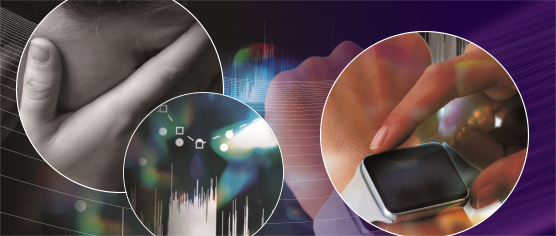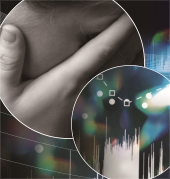
The objective evaluation of depressive mood is considered to be useful for the diagnosis and treatment of depressive disorders. Thus, we investigated psycho-behavioral correlates, particularly the statistical associations between momentary depressive mood and behavioral dynamics measured objectively, in patients with major depressive disorder (MDD) and healthy subjects. Patients with MDD (n = 14) and healthy subjects (n = 43) wore a watch-type computer device and rated their momentary symptoms using ecological momentary assessment. Spontaneous physical activity in daily life, referred to as locomotor activity, was also continuously measured by an activity monitor built into the device. A multilevel modeling approach was used to model the associations between changes in depressive mood scores and the local statistics of locomotor activity simultaneously measured. We further examined the cross-validity of such associations across groups. The statistical model established indicated that worsening of depressive mood was associated with increased intermittency of locomotor activity, as characterized by a lower mean and higher skewness. The model was cross-validated across groups, suggesting that the same psycho-behavioral correlates are shared by both healthy subjects and patients, although the latter had significantly higher mean levels of depressive mood scores. Our findings suggest the presence of robust as well as common associations between momentary depressive mood and behavioral dynamics in healthy individuals and patients with depression, which may lead to the continuous monitoring of the pathogenic processes (from healthy states) and pathological states of MDD.

